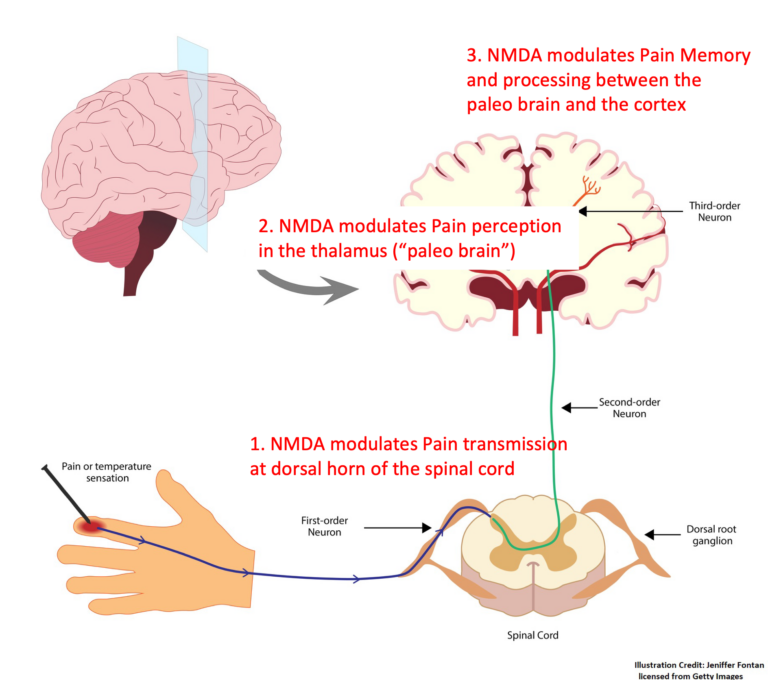Chronic Pain and the Pain Pathway
Our Therapeutic Focus
Bipolar Depression & Suicidality
Chronic Pain is at the heart of the Opioid Crisis
Few new drugs are on the horizon
NRX-101 may offer hope
The current opioid crisis, fueled by a failure of non-opioid medication to achieve meaningful clinical relief, creates an acute need for nonaddictive, non-sedating pain medication.
New academic and pre-clinical research shows that NMDA receptors are active at each step of the pain pathway: From the focal point of our pain, through the peripheral nervous system, up our Spinal cord to the brain.
D-Cycloserine (DCS), an active ingredient of NRX-101, is a potent NMDA antagonist at high-enough doses. We are developing NRX-101 to treat chronic pain by modulating the NMDA receptor at every step of the pain pathway.
Academic and Pre-clinical data indicate that pain perception is modulated by the NMDA receptor as it travels through the peripheral nervous system to the central nervous system, and up to the brain.
As pain signals reach our brain, our perception of that pain is modulated in the Thalamus, and memory of the pain is modulated and stored in our cortex.
Human brain imaging studies suggest that chronic, neuropathic pain has a strong emotional component that is mediated by the medial prefrontal cortex (mPFC).1

Extensive literature already exists to suggest that DCS treats chronic pain. In research settings its been found that:
- DCS robustly reduces tactile sensitivity and protective paw posturing in rat models of neuropathic pain
- DCS facilitates fear extinction when administered systematically or centrally to the amygdala or mPFC2
- plays a role in both pain and PTSD3
- DCS shown to improve mitochondrial function
- Mitochondrial dysfunction has previously been shown to be responsible for maintaining chronic pain after nerve injury. DCS, an active ingredient of NRX-101 has shown to improve mitochondrial function.4
- There is strong scientific rationale that DCS may reduce opioid cravings in people who suffer from both chronic pain and addition
Clinical evidence is already published showing DCS’s therapeutic effect on chronic pain
In a human dose escalation trial, in post-hoc analysis, DCS was shown to achieve a significant reduction in chronic back pain from baseline at 400 mg/day while no significant benefit was seen for placebo.3
- Millecamps Pain 2007; 132: 108-123
- Walker DL, J Neurosci. 2002; 22(6):2343-2351.
- Schnitzer Mol Pain 2016; 12:1-8
-
Lyons Clin J Pain 2018; 34: 168–177

